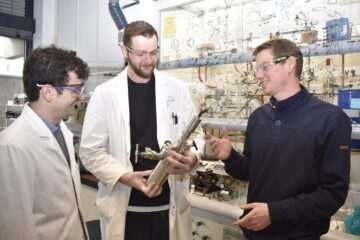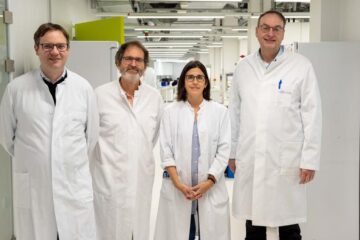Mortality rate is twice as high in patients with pneumonia caused by highly resistant bacteria

A study published today in the journal Critical Care shows for the first time that the highly resistant, metallo-beta-lactamase-producing Pseudomonas aeruginosa is associated with a much higher mortality rate than other types of the bacteria in patients with hospital-acquired pneumonia. The authors conclude that this may be due to the use of inappropriate antimicrobial treatments for infections with metallo-beta-lactamase-producing P. aeruginosa, and suggest that therapeutic approaches should be reviewed in hospitals with high prevalence of the bacteria.
Alexandre Zavascki from Universidade Federal do Rio Grande do Sul in Porto Alegre, Brazil, and colleagues from other institutions in Brazil studied 150 patients admitted to two hospitals in Porto Alegre and suffering from hospital-acquired pneumonia.
The results of Zavascki et al.’s study show that 42 patients were infected with metallo-beta-lactamase-producing P. aeruginosa. For these patients, the 30-day mortality rate was 57.1%, compared with 29.6% for patients infected with other P. aeruginosa strains. Only half of the patients infected with the highly resistant bacteria were treated with appropriate antibiotics. But even when the recommended treatment was used, mortality was still high, suggesting that the optimal treatment for these highly resistant bacteria is yet to be found.
Media Contact
More Information:
http://www.biomedcentral.comAll latest news from the category: Health and Medicine
This subject area encompasses research and studies in the field of human medicine.
Among the wide-ranging list of topics covered here are anesthesiology, anatomy, surgery, human genetics, hygiene and environmental medicine, internal medicine, neurology, pharmacology, physiology, urology and dental medicine.
Newest articles

Efficient, sustainable and cost-effective hybrid energy storage system for modern power grids
EU project HyFlow: Over three years of research, the consortium of the EU project HyFlow has successfully developed a highly efficient, sustainable, and cost-effective hybrid energy storage system (HESS) that…

Safer alternative for an explosive reaction
The chemical industry has been using a reaction with explosive chemicals for over 100 years – now Mülheim scientists have discovered a safer alternative. The Ritter Group of the Max…

How immune cells communicate to fight viruses
Chemokines are signalling proteins that orchestrate the interaction of immune cells against pathogens and tumours. To understand this complex network, various techniques have been developed to identify chemokine-producing cells. However,…





















